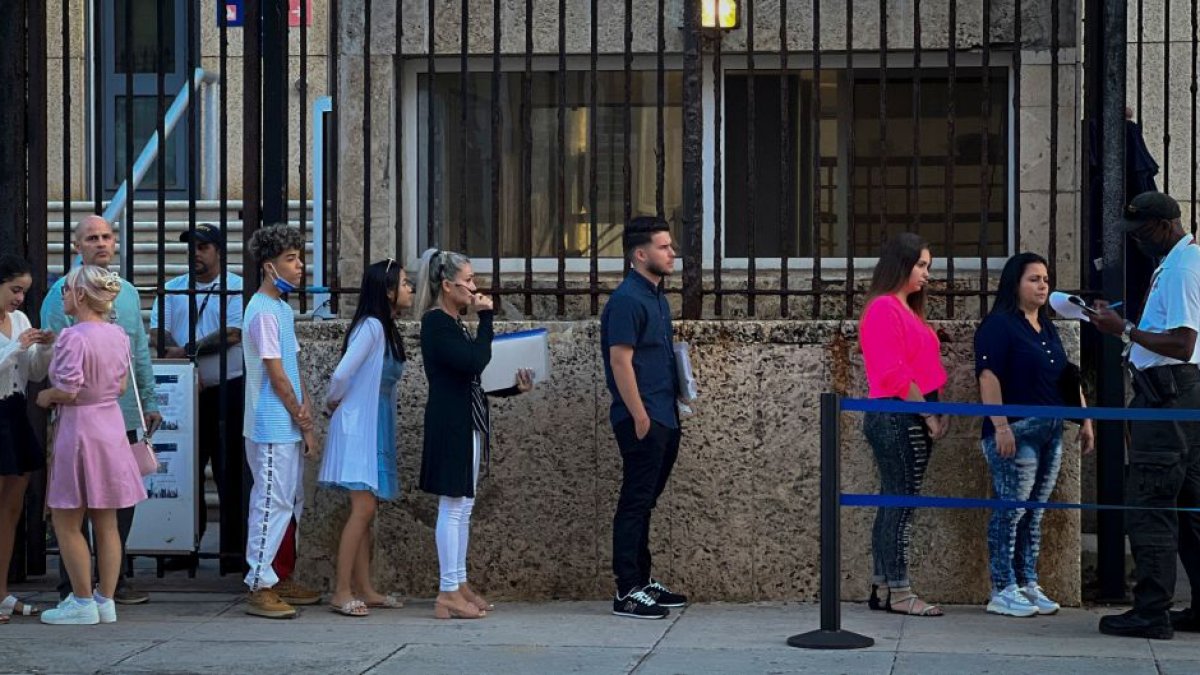A Texas judge has decided not to freeze humanitarian parole at this time after Florida and 19 other states filed for it ahead of the hearing in the lawsuit against the government over the program that benefits Cubans, Venezuelans, Haitians and Nicaraguans.
Judge Drew B. Tipton has ruled that the states’ request to freeze implementation of the humanitarian parole program will be considered in the trial, whose start date has not yet been set, according to an order signed Monday, December 27. FEBRUARY.
The motion brought by Florida and 19 other states asked to freeze humanitarian parole before the hearing that opened the trial.
On January 24, the attorneys general of 20 U.S. states, including Florida and Texas, filed a lawsuit against President Joe Biden’s government program to grant 30,000 humanitarian visas to migrants from Cuba, Venezuela, Nicaragua and from Haiti.
The states that sued were Texas, Florida, Alabama, Alaska, Arkansas, Idaho, Iowa, Kansas, Kentucky, Louisiana, Mississippi, Missouri, Montana, Nebraska, Ohio, South Carolina, Tennessee, Utah, West Virginia and Wyoming.
The lawsuit asks a federal judge to block the humanitarian parole program for citizens of Cuba, Haiti, Venezuela and Nicaragua with a sponsor, implemented in an effort to stop the border crisis.
WHAT DOES THE TRIAL SAID?
In their lawsuit, led by Texas Attorney General Ken Paxton, the plaintiffs argue that the plan will allow hundreds of thousands of migrants to arrive in already “overcrowded” parts of the United States.
And they pointed out that with this initiative, the Department of Homeland Security (DHS) is abusing its authority to grant humanitarian permits.
In the opinion of those who took the action, the federal government’s plan should be declared illegal because with it the defendants exceeded their authority to grant this type of visa and, moreover, they did not disregarded the ability to deport program recipients after the exhaustion of the two-year permit to be in the United States.
The lawsuit is directed against the DHS and its head, Alejandro Mayorkas, as well as against the federal agencies responsible for providing border security and regulating migration flows and those responsible.
The lawsuit argues that Florida would suffer billions of dollars in damages from this program, as well as important state memories, such as public education, health care. But the lawyers insist that there is the financial role of the sponsor.
“The public office is going to be removed, and that benefits the country; it is also advantageous to have the workforce, the workers that we need now,” says Malouf.
But Florida’s attorney general said the humanitarian parole program is in direct violation of federal law and said the president’s executive actions were excessive.
“From day one, we saw a series of executive orders and cancellations of programs that were in place to secure the border,” Moody said.
From now on, jurists recommend patience and vigilance. “Continue, without pause, but also without haste, the means of making requests through this program, which are relatively simple,” says Alpízar.
With information from EFE

